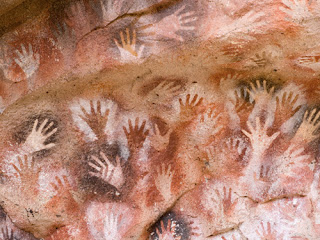Let’s go to Moses.
Exodus reports that the Israelites “groaned from the bondage and cried out, and their plea from the bondage went up to God. And God heard their moaning, and God remembered [literally, took to heart] His covenant with Abraham, with Isaac, and with Jacob. And God saw the Israelites, and God knew.”
“What did You know?”
What I needed to do.
“And what was that?”
Read the next chapter.
“It’s about Moses encountering the burning bush.”
Yes, I had to get his attention. Often I have to put something in people’s paths to get their attention.
“And the Lord’s messenger appeared to him in a flame of fire from the midst of the bush, and he saw, and look, the bush was burning with fire and the bush was not consumed. Moses thought, ‘Let me, pray, turn aside that I may see this great sight, why the bush does not burn up.’ The Lord saw that he had turned aside to see, and God called to him from the midst of the bush and said, ‘Moses, Moses!’ And he said, ‘Here I am.’’’
“He reports for duty, ‘Here I am.’”
Moses had the capacity to listen to Me and to obey.
God gives Moses his mission. “And now, go that I may send you to Pharaoh, and bring My people the Israelites out of Egypt.” And Moses asks, “Who am I that I should go to Pharaoh and that I should bring out the Israelites from Egypt?”
But Moses will not be on his own. “And He said, ‘For I will be with you.’”
Moses protests. “Look, when I come to the Israelites and say to them, ‘The God of your fathers has sent me to you,’ and they say to me, ‘What is His name?’, what shall I say to them?”
There are various translations of God’s answer, the most revealing of which is by Everett Fox. Moses should tell them “I will be-there” sends me to you. “What does this mean, Lord?”
Several things are going on in that name.
I did disclose it and they got it essentially right. Self-disclosure is part of it. Presence is part of it. The fact that I am seen all the time, that I am ever-present to people, communicating with them sotto voce all the time. It is also reassurance, because I am there to help. When you need me, I will be there. It also has something to do with the quality of presence, that I am fully and authentically and immediately and intimately present, as when you say that one person is “more present” than another.
It means that My essence for human beings is that I will be there, be present, that I am a companion and friend and ally; that My very presence is the heart of Me, and is what (the what of Me) human beings need to know, (the what of Me) that matters.
I will be there for you, by your side, in the fight or in the suffering or in the love. I will be a participant and a partner. That is My essence for human beings.
________
Listen to this on God: An Autobiography, The Podcast– the dramatic adaptation and continuing discussion of the book God: An Autobiography, As Told To A Philosopher by Jerry L. Martin.
He was a lifelong agnostic, but one day he had an occasion to pray. To his vast surprise, God answered- in words. Being a philosopher, he had a lot of questions, and God had a lot to tell him.









